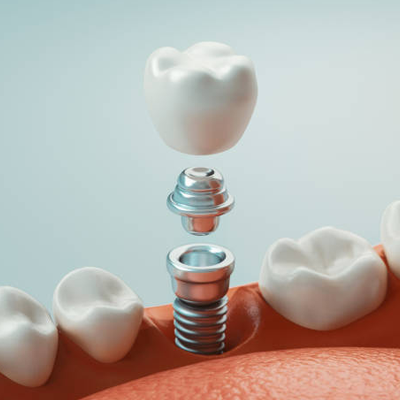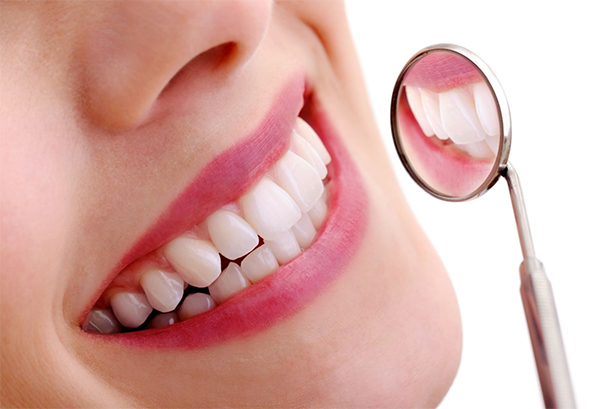
How To Deal With Tooth Sensitivity
Tooth sensitivity, or dentin hypersensitivity, is a common dental issue that can cause discomfort and disrupt your daily routine. That sudden jolt of pain when you sip on hot coffee or savor an ice cream cone – it’s enough to make you wince. But fear not, fellow smile-seekers! This guide delves into the causes of dentin hypersensitivity, explores effective management strategies, and offers tips for keeping those pearly whites comfortable and strong.
Recognizing the Problem’s Root (pun intended)
Tooth enamel, the hard outer layer of your teeth, acts as a shield, protecting the inner dentin layer. Dentin contains microscopic tubules that lead directly to the tooth’s nerve center. When enamel weakens or wears away, these tubules become exposed, allowing hot, cold, acidic, or sweet stimuli to reach the nerve, triggering that unpleasant twinge.
Several factors can contribute to tooth enamel erosion and subsequent tooth sensitivity:
Brushing too hard:
Brushing with excessive force can wear down enamel over time.
Using a hard-bristled toothbrush:
Opt for soft-bristled brushes that gently clean without scrubbing.
Gum recession:
The dentin becomes exposed as gum tissue shrinks away from the tooth root.
Cracked or chipped teeth:
Fractures can expose the dentin layer.
Dental procedures:
Certain procedures, like fillings or crowns, may temporarily increase sensitivity.
Acidic foods and drinks:
Frequent consumption of acidic beverages (sodas, citrus juices) or acidic foods can erode enamel.
Teeth grinding:
Grinding or clenching your teeth can wear down enamel and cause sensitivity.
Soothing the Sting: Strategies for Managing Tooth Sensitivity
If you’re experiencing dentin hypersensitivity, there are steps you can take to find relief and prevent further discomfort. Here are some effective strategies:
Embrace the Soft Touch:
Make the switch to a toothbrush with soft bristles, and brush in gently circular motions. Avoid harsh scrubbing.
Fluoride Power:
Fluoride strengthens enamel and helps block the exposed tubules in the dentin. Use a toothpaste formulated for sensitive teeth with a high fluoride content (around 1,100 ppm). You can also ask your dentist about professional fluoride treatments for an extra boost.
Desensitizing Toothpastes:
These contain ingredients like potassium nitrate or stannous fluoride that help block the tubules and reduce sensitivity. Be patient, as it may take a few weeks of consistent use to see results.
Mind Your Diet:
Limit your intake of acidic foods and drinks. If you do give in, be careful to rinse your mouth thoroughly with water to offset the harsh flavor.
Say No to Grinding:
See your dentist if you think you grind your teeth at sleep. They can recommend a mouthguard to protect your teeth from wear and tear.
Salt Water Rinse:
In a glass of warm water, combine half a teaspoon of table salt and swirl for 30 seconds. This can provide temporary relief and has mild antibacterial properties.
Schedule regular dental checkups and cleanings with Dentists in McKinney. Your dentist can identify the underlying cause of your tooth sensitivity and recommend the most appropriate treatment options.
Brushing Up on Prevention: Keeping Sensitivity at Bay
Developing good oral hygiene habits is key to preventing dentin hypersensitivity in the first place. The following are some proactive actions you can do:
Maintain a Consistent Brushing and Flossing Routine:
Brush your teeth twice daily for two minutes each time, and floss once a day to remove plaque and bacteria buildup.
Choose the Right Tools:
Use a soft-bristled toothbrush and fluoride toothpaste. Consider using an electric toothbrush for a more thorough cleaning experience.
Watch Your Brushing Technique:
Use gentle, circular motions while brushing. Avoid harsh scrubbing or sawing motions.
Be Mindful of What You Eat and Drink: Limit acidic foods and drinks, and rinse your mouth with water after consuming them.
Don’t Use Your Teeth as Tools:
Avoid using your teeth to open bottles, crack nuts, or chew on hard objects. This can damage your teeth and increase your risk of sensitivity.
Manage Stress:
Stress can contribute to teeth grinding, which can worsen tooth sensitivity. Explore relaxation techniques like meditation or yoga to manage stress levels.
Beyond the Basics: Additional Considerations
For some individuals, managing tooth sensitivity may require additional strategies depending on the underlying cause. Here are some specific scenarios:
Gum Recession:
If gum recession is contributing to dentin hypersensitivity, your dentist may recommend gum grafting procedures to cover the exposed tooth root.
Cracked or Chipped Teeth:
For cracked or chipped teeth, your dentist can repair the damage using fillings, crowns, or other restorative procedures.
Teeth Grinding:
If teeth grinding is the culprit, a custom-made mouthguard worn at night can protect your teeth and prevent further damage and sensitivity.
Living Comfortably with Tooth Sensitivity
dentin hypersensitivity, while uncomfortable, can be effectively managed with the right approach. By understanding the causes, implementing these strategies, and prioritizing good oral hygiene practices, you can keep your smile healthy, strong, and comfortable. Remember, consistency is key! If you don’t get results right away, don’t give up. Stick with your new routine, and you’ll be well on your way to a pain-free smile.
Here are some additional tips for living comfortably with tooth sensitivity:
Identify Your Triggers:
Pay attention to the foods and drinks that seem to trigger your sensitivity. Once you identify them, try to limit your consumption or avoid them altogether.
Gradual Temperature Changes:
Avoid extreme temperatures when consuming food and beverages. Opt for lukewarm or room-temperature options whenever possible.
Sensitivity-Friendly Snacks:
Keep healthy, low-acid snacks on hand like cheese, yogurt, or vegetables to curb cravings without aggravating your sensitivity.
Pain Relief Medication:
Over-the-counter pain relievers like ibuprofen or acetaminophen can provide temporary relief from toothache associated with sensitivity. However, consult your doctor before using any medication regularly.
When to See a Dentist
If your dentin hypersensitivity is severe, persists despite home remedies, or is accompanied by other symptoms like toothache, swelling, or bleeding gums, it’s crucial to schedule an appointment with your dentist. They can diagnose the underlying cause of your sensitivity and recommend the most appropriate treatment course. Early intervention is essential to prevent further complications and ensure long-term oral health.
Remember, a healthy smile is a happy smile! By taking proactive steps to manage tooth sensitivity, you can enjoy a lifetime of comfort and confidence.







